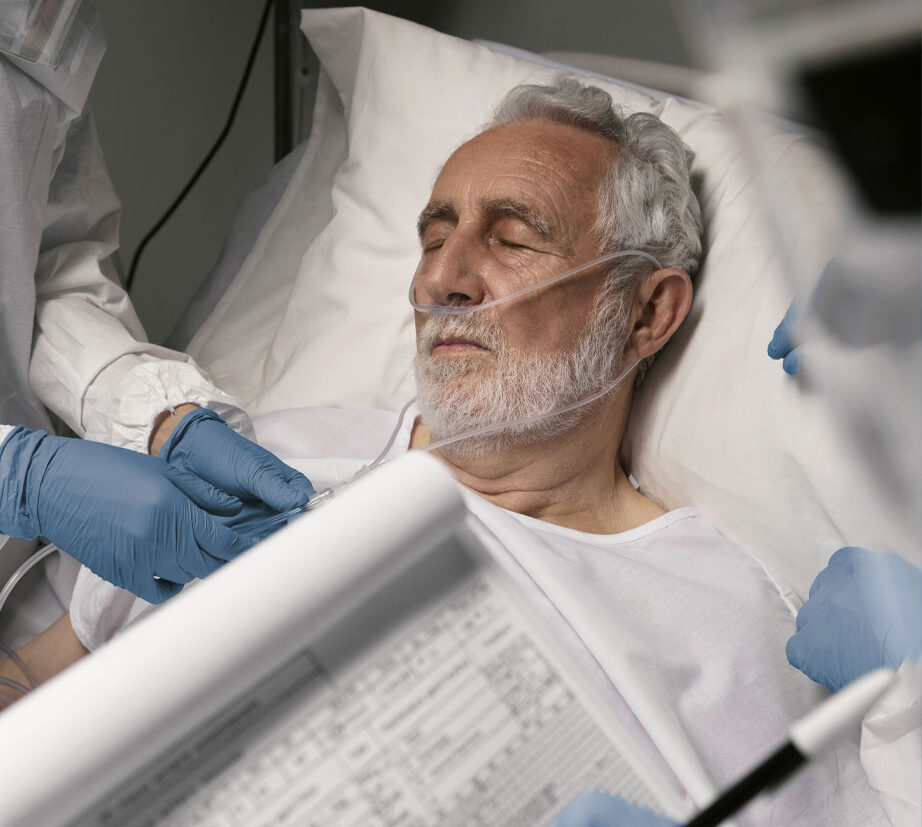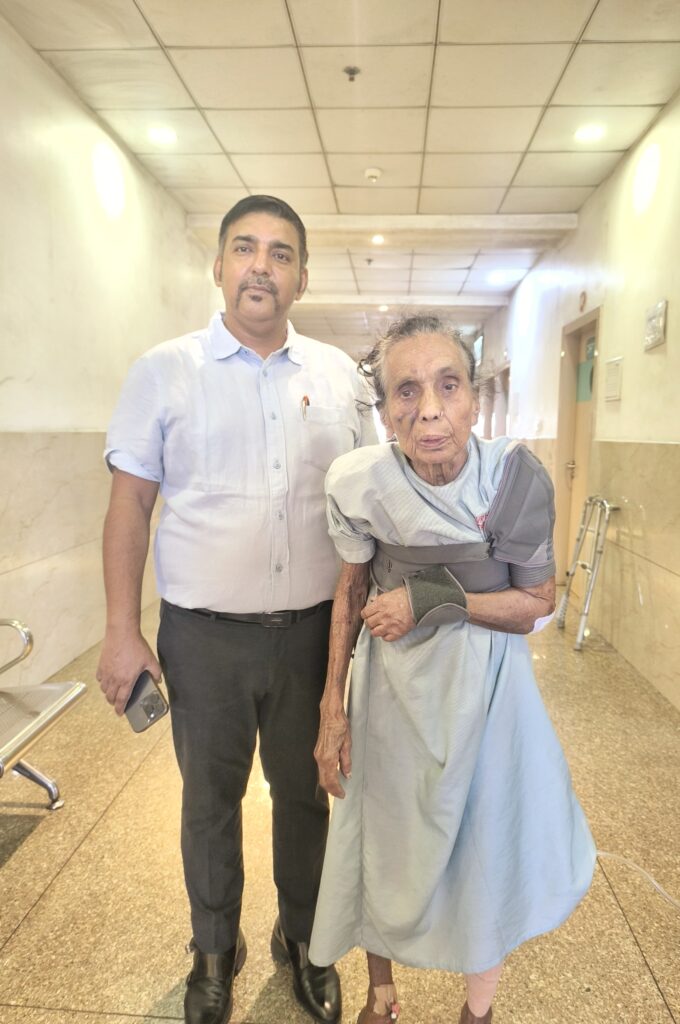Geriatric Surgery Unit: Specialized Care for Older Adults

What is Geriatric Surgery?
Geriatric surgery focuses on safe, tailored surgical care for patients aged 65+, addressing unique needs like:
✔ Slower healing and higher complication risks
✔ Multiple chronic conditions (diabetes, heart disease)
✔ Frailty & cognitive concerns (dementia, mobility issues)
Our unit combines surgical expertise with geriatric medicine to optimize outcomes for procedures like:
- Joint replacements (knee/hip)
- Cancer surgeries (colon, prostate)
- Minimally invasive procedures (hernia, gallbladder)
- Fracture repairs (hip/pelvis)
How We Ensure Safe Geriatric Surgery?
1. Pre-Surgical “Geriatric Assessment”
- Comprehensive evaluation of:
→ Physical health (heart, lungs, nutrition)
→ Cognitive function (memory, decision-making)
→ Social support (home safety, caregivers)
2. Specialized Surgical Approaches
- Minimally invasive techniques (smaller cuts, faster recovery)
- Regional anesthesia (safer than general anesthesia)
- Enhanced Recovery After Surgery (ERAS) protocols
3. Post-Op Geriatric Care
- Delirium prevention strategies
- Early mobility to avoid blood clots/bedsores
- Pain management avoiding opioids

Why Choose Gariatric Surgery Unit
![]()
Lower Complication Rates
30% fewer post-op issues vs. standard surgery (Journal of the American College of Surgeons)
![]()
Shorter Hospital Stays
Discharge 2-3 days earlier through tailored rehab plans
![]()
Focus on Independence
85% patients regain pre-surgery mobility with our physiotherapy
Customer Video Testimonials

Expected Recovery Milestones
| Timeline | Typical Progress |
|---|---|
| Day 1-3 | Sitting up, short walks |
| Week 2 | Stair climbing, light household tasks |
| Month 1-3 | Return to most daily activities |
Note: Recovery varies based on pre-surgery health.
FAQs : Your Questions Answered
Q1: My 80-year-old mother needs hip surgery. Is she too old?
A: Age alone isn’t a barrier! We’ve successfully operated on 90+ year-olds. The key is our pre-surgery assessment checking:
→ Heart/lung function
→ Nutritional status
→ Home support system
Real case: Last month, an 88-year-old with diabetes underwent minimally invasive hip replacement and walked the next day!
Q2: How do you prevent confusion after surgery?
A: We use proven delirium prevention methods:
✓ Non-opioid pain control (nerve blocks, Tylenol)
✓ Day/night cycle maintenance (window exposure, sleep protocols)
✓ Family involvement (familiar faces reduce disorientation)
Did you know? 40% of elderly patients experience post-op confusion without these measures.
Q3: What makes anesthesia safer for seniors?
A: We prefer:
✔ Spinal/epidural anesthesia (avoids intubation risks)
✔ Lighter sedation when possible
✔ Extra monitoring for blood pressure/oxygen
Comparison:
| General Anesthesia | Our Preferred Approach |
|---|---|
| Higher delirium risk | 60% lower risk |
| Longer recovery | Faster wake-up |
Q4: How long until my father can live alone after surgery?
A: Typically 2-6 weeks with our support:
- Week 1-2: Transitional care (home nurse visits)
- Week 3+: Safety modifications (grab bars, walker)
Key factor: Pre-surgery independence level. Our social worker creates custom plans.
Q5: Does Medicare/insurance cover geriatric surgery?
A: Yes! All essential services are covered:
- Pre-op assessments
- Surgery
- Rehab (physiotherapy, occupational therapy)
Cost-saving tip: Our pre-hab program (strengthening pre-surgery) reduces complications = lower overall costs.

Our Geriatric Surgery Difference
✔ Dedicated “Silver Team” – Geriatrician + Surgeon + Physiotherapist
✔ Family conferences – Clear communication at every step
✔ Home recovery planning – Ensures safe transition
Consult our geriatric surgeon today!
